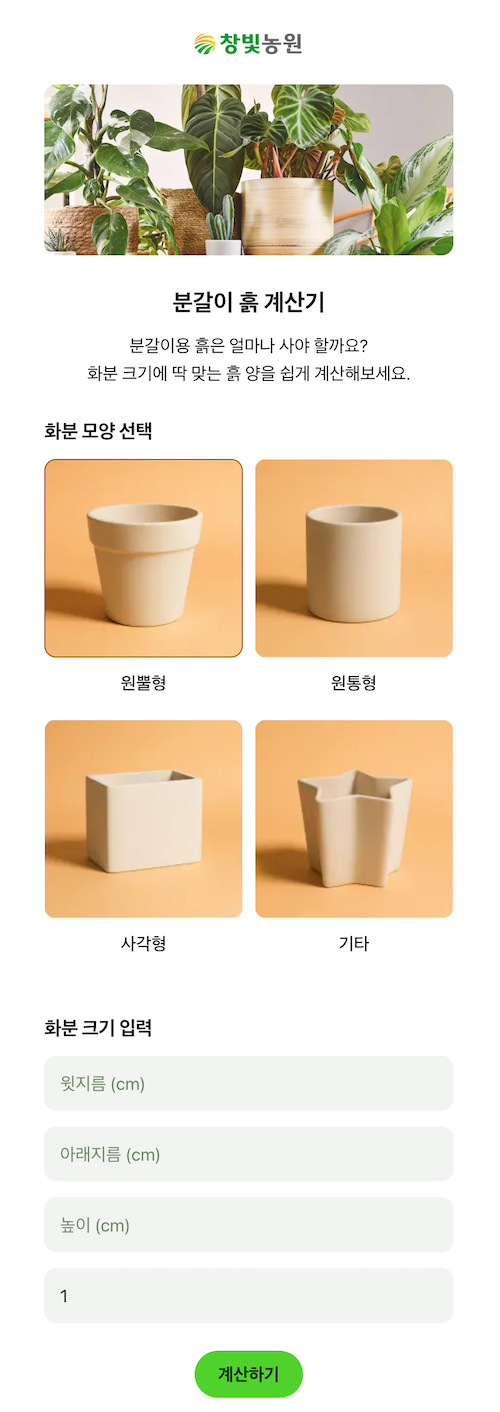✨ Try It
👉 Launch the Potting Soil Calculator
📬 Source Code
GitHub: https://github.com/namikimlab/potting-soil-calculator

🪴 Why I Built This
When planting in pots, figuring out how much soil you need can be surprisingly tricky.
The volume depends on the pot’s shape, size, height, and quantity — and beginner gardeners often don’t have a clear way to calculate it.
So I decided to create a tool that allows users to quickly and intuitively calculate the soil volume needed for repotting.
🔧 Tech Stack
This is a frontend-only React web app.
- React + TypeScript: Component-based architecture with type safety
- Vite: Lightning-fast development and build tool
- Tailwind CSS: Utility-first, responsive styling
- Netlify: Static deployment with automatic HTTPS
- Google Analytics (GA4): Traffic and behavior tracking
- Jest + ts-jest: Full unit test coverage (100%)
📦 Key Features
- Select from 4 pot shapes: rectangle, cylinder, cone, or custom surface area
- Input measurements depending on shape
- Calculate total soil volume (liters), assuming 80% fill
- Recommend optimal product combinations (20L + 8L bags)
- Suggest drainage gravel (Masato) to place at the bottom
- Mobile-friendly responsive layout
- SEO: Open Graph meta tags, favicon, sitemap.xml, robots.txt
💡 What I Focused On
-
Designed to encourage real purchases
Not just a calculator — it integrates directly with purchase buttons and product links. -
Robust input validation
Required fields, numeric limits, and edge case handling are all in place. -
Mobile-first user experience
Big touch targets, clear labels, and clean layout for gardening beginners on smartphones.
🧪 Testing Matters
Even though the calculateSoilVolume function looks simple,
it involves multiple formulas depending on shape, unit conversions, and rounding.
I wrote thorough unit tests using Jest and maintain 100% test coverage.
🌍 Deployment & SEO
- Deployed as a static site on Netlify
- Custom
sitemap.xmlandrobots.txtfor search engine indexing og:imageand meta tags for social sharing (e.g. KakaoTalk, Facebook)canonicaltag to prevent duplicate indexing
🎨 Design with AI
- Started with a simple hand-drawn sketch and selected a natural color palette.
- Used Google Stitch to generate design concepts based on UI layout, target users, and key features.
- Created pot shape icons using ChatGPT’s image generation from my initial sketches.
- Combined AI tools to quickly build a cohesive, production-ready UI without a dedicated designer.
👀 Final Thoughts
I originally started this as a simple calculator,
but quickly realized how many details I had to consider:
UX, design, validation, SEO, deployment, maintainability, and even purchase flow.
To make a truly useful tool for real users,
I had to be deliberate at every step — from design to implementation to polish.
This may be a small web app,
but I treated it like a product — and through that process, I experienced the full cycle of frontend product development.